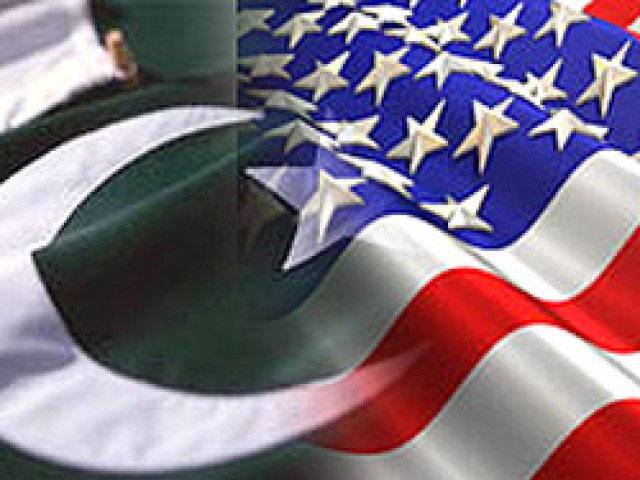WASHINGTON - While acknowledging Pakistan's democratic strikes, the United States says extrajudicial and targeted killings, sectarian violence, disappearances, and torture were the "most serious human rights problems" prevailing in the South Asian country.
The Congressionally-mandated “2013 Country Reports on Human Rights Practices”, which was released on Thursday, says “there was significant consolidation of the country’s democratic institutions during the year.”
“The election marked the first time since independence in 1947 that one elected government completed its term and peacefully transferred power to another,” the report said, while noting that PML-N won a majority of seats in parliamentary elections and that the party leader, Nawaz Sharif, took over as the country's prime minister.
"Independent observers and some political parties, however, raised concerns about election irregularities," the report said. Recounting the top-level transitions, Pakistan achieved successfully last year, the report says on September 8, President Asif Ali Zardari completed his five-year term and stepped down from the office. His successor, President Mamnoon Hussain of the PML-N, took office the next day.
“Orderly transitions in both the military and the judiciary, in the positions of army chief of staff and Supreme Court chief justice, further solidified the democratic transition.” The PML-N controlled the executive office, the National Assembly, and the Punjab Assembly, with rival parties or coalitions governing the country’s three other provinces, it adds.
For the May elections, the Election Commission of Pakistan (ECP) reportedly accredited approximately 43,000 domestic observers, the majority of whom were from the Free and Fair Election Network (FAFEN). The EU, Democracy International, the Aurat Foundation, and the National Democratic Institute (NDI) were among the many groups that observed the election. The government permitted all existing political parties to contest the elections. Although several boycotted, the largest parties participated. In general election observers considered the May elections a success, despite terrorist violence and some procedural problems. Voter turnout was high, the report says.
"The military and intelligence services nominally reported to civilian authorities but at times operated without effective civilian oversight, although the new government took steps to improve coordination with the military.
"Police generally reported to civilian authority, although there were instances in which police forces acted independently. Security forces sometimes committed abuses."
Other human rights problems, according to the report, included poor prison conditions, arbitrary detention, lengthy pretrial detention, a weak criminal justice system, lack of judicial independence in the lower courts, and infringement on citizens’ privacy rights.
"Harassment of journalists, censorship, and self-censorship continued. There were some government restrictions on freedom of assembly and some limits on freedom of movement. Sectarian violence and discrimination against religious minorities continued. Corruption within the government and police was a persistent problem. Rape, domestic violence, sexual harassment, “honour” crimes, other harmful traditional practices, abuse, and discrimination against women and girls continued to be serious problems. Child abuse and commercial sexual exploitation of children persisted. Widespread human trafficking – including forced and bonded labor – remained a serious problem. Societal discrimination against national, ethnic, and racial minorities persisted, as did discrimination based on caste, sexual orientation, gender identity, and HIV status. Lack of respect for worker rights continued.
"Lack of government accountability remained a problem, and abuses often went unpunished, fostering a culture of impunity. Authorities punished government officials for human rights violations in very few instances.
"Violence, abuse, and social and religious intolerance by militant organisations and other nongovernmental actors contributed to a culture of lawlessness in some parts of the country, particularly the provinces of Balochistan, Sindh, Khyber Pakhtunkhwa, and the Federally Administered Tribal Areas (FATA).
Friday, April 26, 2024
Serious rights violations persist in Pakistan: US

Caption: Serious rights violations persist in Pakistan: US
12:32 PM | April 26, 2024
11:26 AM | April 26, 2024
China wants ‘just, lasting’ solution to Palestine issue
1:21 PM | April 26, 2024
Three-day global science-policy forum: Socially inclusive solar irrigation systems
11:02 AM | April 26, 2024
DG kicks off tree plantation drive in ICT
April 26, 2024
11 outlaws arrested in district raids
April 26, 2024
Economic Challenges
April 26, 2024
No Compromise
April 26, 2024
Strength and Solidarity
April 26, 2024
Musk vs Australia
April 25, 2024
Reforming Rehab
April 25, 2024
Photon power
April 26, 2024
Justice prevails
April 26, 2024
Ending animal suffering
April 25, 2024
AI governance
April 25, 2024
AI concerns
April 25, 2024
ePaper - Nawaiwaqt
Advertisement
Nawaiwaqt Group | Copyright © 2024





